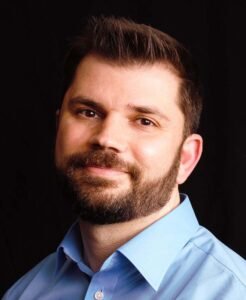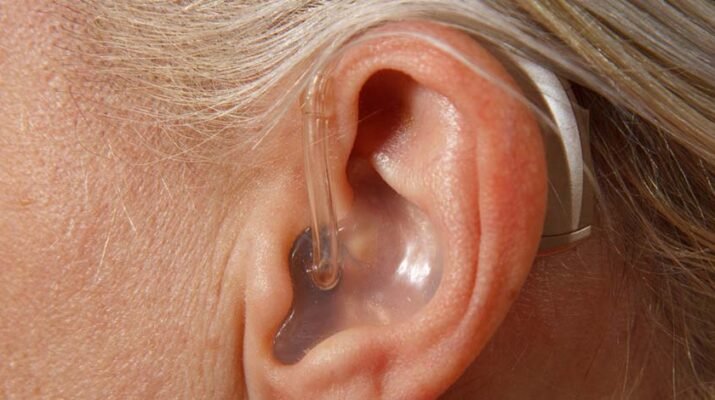Audiologists weigh in on the new hearing aid devices
By Deborah Jeanne Sergeant
Availability of over-the-counter hearing aids may become reality sometime this year.
The Food and Drug Administration recently proposed guidelines on allowing a new class of hearing aids to be sold without a prescription for people 18 and older with mild to moderate hearing loss.
Congress approved OTC hearing aids in 2017. However, the industry has been waiting on the FDA’s guidance. The bill states: “The regulations for over-the-counter hearing aids must: (1) provide reasonable assurances of safety and efficacy; (2) establish output limits and labeling requirements; and (3) describe requirements for the sale of hearing aids in-person, by mail, or online, without a prescription.”
Hearing instruments currently available include personal sound amplification products, which are currently available over the counter, and hearing aids, which are prescription-only devices presently.
PSAPs are devices for people with normal hearing. These simply ramp up all sound and are used for certain hobbies such as bird watching.
OTC instruments, once available, should offer more sophisticated help than PSAPs, but the FDA is still deciding how to describe and regulate these products.
Hearing aids are much more sophisticated instruments than PSAPs lower cost OTC aids. They help users with hearing loss amplify and make sense of wanted sounds such as conversation. Top-of-the-line models use Bluetooth technology to communicate with each other to boost the user’s ability to locate sound origin. Some models can transmit phone calls and smart TV output directly to the user’s ears. OTC products will likely be much simpler as the cost associated with this kind of technology would disincentivize many consumers to purchase them.
Jim Harter, audiologist and owner of Village Audiology & Hearing in Lancaster, sees patient cost as the only benefit to offering OTC hearing aids.
“They’re going to see a hearing aid that they can get for a lower price but who evaluates them and who will adjust it based on their hearing loss?” Harter said. “That’s my major concern.”
The bill specifies that OTC devices must have reasonable assurance of safety. This may help reduce risk of injury, since the instruments do not require a professional to adjust them.
Prescription hearing aids start at about $5,000; over the-counter models could cost as little as $200. Consumers who feel any stigma about obtaining hearing aids may feel more comfortable purchasing devices at a familiar location—their local drugstore—instead of seeking help at a hearing device office.
One of the aspects of OTC devices that troubles Harter is the wording “mild to moderate hearing loss” referring to patients who would be good candidates. Many people presenting with a profound hearing loss often do not realize the extent of their hearing loss. On average, most people wait seven to 10 years before addressing their hearing loss and do not realize how bad their hearing has become.
He hopes that patients will at least initially visit an audiologist for an exam to see if OTC devices might be appropriate and to seek follow-ups for adjustment to their devices.
His wife, Georgia Harter, also an audiologist at Village Audiology & Hearing, expressed concern about the lack of patient care with OTC devices.
“People really do need oral rehab and support in training in how to use it and keep it functioning,” she said. “If they don’t know how to change the wax filter, it will be worthless. If it over amplifies they’ll say hearing aids are no good.”
Hearing instruments also need maintenance, cleaning and in some cases, battery replacement (although rechargeable devices are becoming more available).
A bad experience with a poor device can turn off a patient from seeking a better device, assuming little difference exists between a well-made hearing aid and a simpler over-the-counter device.

Mike Schmidt, audiologist and owner of Accura Audiology, PLLC in Williamsville, said that his office uses objective measures to ensure the best hearing for patients instead of relying solely on the patient’s objective experience of what sounds right.
“If that’s not being done, there’s a high chance they’re not getting the most out of their hearing aids,” Schmidt said. “That’s not being done with an OTC aid unless they bring it to an audiologist to get it verified as the closest match.”
He wants people to assess how they want to live with their hearing devices: as aids to use all day long or in certain environments. For the former, OTC devices will likely disappoint because of the diverse environments in which devices must perform. The technology with OTC devices is not sophisticated enough to manage.
But for those with mild to moderate hearing loss and an appreciation of the limitations of OTC devices, he said that’s better than nothing.
“If the OTC push gets the rate of adoption of hearing aids a little higher and people have better quality of living, that’s a good thing,” Schmidt said. “People will see that it aids their hearing.
Audiologists generally provide a service where they’ll consult at no charge. If someone needs information, they can make an appointment to go over the options.”
Kelly L. Thurber is a New York State registered hearing care professional with Empire Hearing & Audiology. The organization’s New York locations include Amherst, Niagara Falls, Webster, Penfield, Greece, Auburn, Cicero, New Hartford, Rome, East Syracuse and Liverpool. Thurber compares OTC devices to drugstore reading glasses.
“If your vision is impaired, you should see an optometrist for an assessment and prescription glasses. But if you just need a little help reading small print, a pair of OTC ‘cheaters’ can provide some help,” Thurber said.
In a similar sense, people with hearing issues should seek an evaluation from an otolaryngologist or audiologist to rule out any medical issues before seeking a hearing instrument. Wax build-up, ear infections or tumors could all cause hearing impairment and may be medically addressed. Simply picking up a hearing aid at the drugstore would not address the problem.
For those with an actual hearing loss, a professional exam is still important.
“Without undergoing a comprehensive hearing evaluation from a licensed hearing care professional, the actual degree of loss is unknown,” Thurber said. “The risk is that the brain will not receive the appropriate levels of amplification necessary for proper sound and speech processing with an OTC hearing aid, this could be too little or too much amplification.”
Hearing care professionals have completed training to help them offer custom hearing aid adjustments to the device that can offer the ideal hearing experience for the patient, which is especially important for patients with severe to profound hearing loss.
Mike Halloran, president of Beltone based in Glenview, Illinois, sees easier adoption as a plus of OTC hearing instruments.
“With the caveat that we still don’t know the final guidelines on OTC products, we welcome this new regulation and believe it will help many more people with mild-to-moderate hearing loss,” Halloran said.
Beltone operates locations in Blasdell, Tonawanda, Batavia, Fayetteville, Liverpool and Watertown.
Halloran said only 20% of people treat their hearing loss.
New products and care models can help people seek treatment earlier. OTC devices “will be great for consumer choice, providing people with a lot of ways to treat their hearing loss sooner. That’s a very good thing,” he said.
He expressed some concern over potential for confusion over the various types of hearing devices. He hopes that the FDA guidance will help consumers know what they are purchasing and that they will continue to seek the care of a hearing professional.

